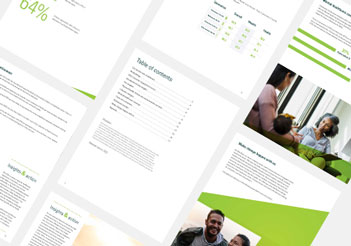We’re more than HSAs
Need more support?
With Commuter Benefits, employees can pay for certain workplace mass transit and parking expenses on a tax-free basis through payroll deductions up to the limits set by the IRS. Employees set aside funds on a tax-free basis to pay for eligible workplace mass transit expenses, such as the price of tickets, vouchers, and passes to ride a subway, train, city bus, or vanpool.
Wellness incentives help endorse a culture of health while demonstrating commitment and engagement to your employees. Offering an additional HSA or HRA contribution to employees who complete a health and wellness initiative is an easy way to show your team you want them to succeed. At HSA Bank, we can integrate with a variety of wellness activity tools and vendors, making it easy for employers to partner with us on their wellness initiatives.

Define what works for you.
In a defined contribution plan, the employer designates a fixed amount of money for each employee. Employees then use that money to purchase insurance products that meet their specific needs and those of their dependents. An intuitive, online enrollment process helps employees shop for insurance products by answering healthcare questions such as how often they visit the doctor, if they have dependents, if they are concerned about prescription costs, and how much they would like to allocate for their premiums and deductibles. Employees can use pre-tax dollars to buy additional insurance or put money in an account, such as a HSA, for qualified health care expenses. The result is the ability for employers to lock in healthcare budgets, reduce administrative work, save thousands of dollars in taxes and premium expenses and create real choices for employees.




